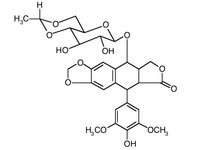SACRAMENTO -- Testicular cancer patients would be well advised to wait at least 100 days after completing etoposide therapy before trying to conceive a child, Francesco Marchetti, Ph.D., said at a cancer symposium sponsored by the University of California, Davis, Cancer Center.
Results of Dr. Marchetti's studies in mice indicated that etoposide induces structural chromosomal damage in germ cells during spermatogenesis. These abnormalities can be transmitted to offspring.
At 64 hours after treatment, 30% of murine sperm cells had structural abnormalities. Although most of the damage proved to be lethal to the cells, aneuploidy was detected in 7% of live spermatocytes and in 2% of the zygotes produced by mating.
Testicular cancer is the most common form of cancer in men aged 15-35 years.
Many oncologists tell patients to use condoms or some form of birth control during treatment, which can last about 9-12 weeks, depending on the number of chemotherapy cycles. There is less consensus regarding how long contraception should be continued after active treatment.
Spermatogenesis in humans takes about 44 days, but a 100-day wait before attempting conception would be more prudent, said Dr. Marchetti, a biomedical scientist at the Lawrence Livermore National Laboratory, Livermore, Calif. Moreover, nonsurgical treatment of testicular cancer often involves exposure to radiation and other chemotherapy agents in addition to etoposide.
COPYRIGHT 2001 International Medical News Group
COPYRIGHT 2001 Gale Group



